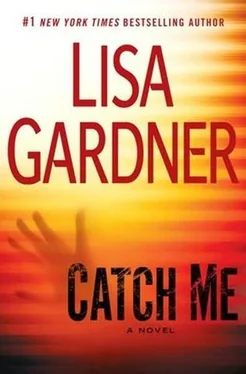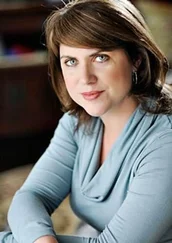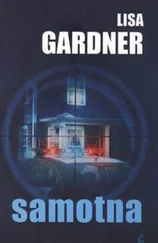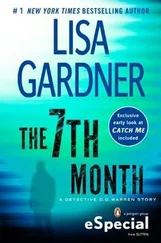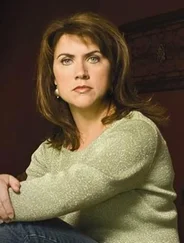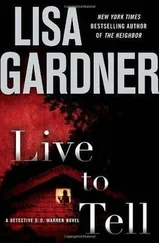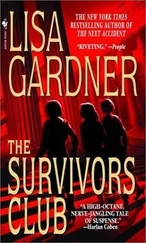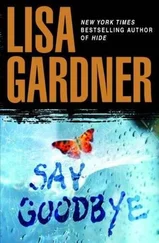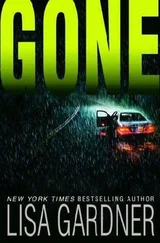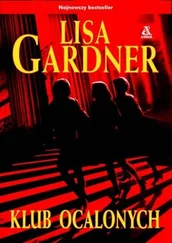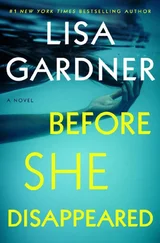“Not a baby. We are much too old for that,” Quincy replied dryly, as if reading her mind. “A ten-year-old girl we fostered first. We love her dearly. And if we are very lucky, one day we hope she will be able to feel that love. But she isn’t there yet.”
“Project,” D.D. said.
“Potential,” Quincy corrected gently. “My wife is a former law enforcement officer as well. We’ve seen both sides of the equation. We know what we’re up against. When I heard of Jackie Knowles’s murder…It was good to have a child in the house again. It was good to remember the promise of the future and not just dwell on past regrets.”
D.D. didn’t say anything. Quincy’s words made her think of everything she loved about coming home to Jack. She’d worried in the beginning that having a baby would limit her ability to do her job. And maybe Jack did limit her hours, but he also balanced the equation. Children, the hope for a better tomorrow, was everything a homicide cop worked for. You took the hit, so your child wouldn’t have to. You put in the long hours, as her case team had done last night, so that other kids could feel safe.
“Fourth friend,” Quincy said.
“What?”
“That’s what you need. Based on your own analysis. You need to create a fictional fourth friend. A fresh target to distract your killer.”
D.D. frowned, turned it over. “But how? If we assume the killer is someone from childhood who knew the trio, the murderer will know it’s false.”
“You need to be the fourth friend.”
“What?”
“The person who initiates the Facebook page. Position yourself as a person of honor and ownership of Jackie and Randi. You met them in college maybe. First Jackie, then Randi, then Charlie. You all hung out together in Boston. You love them, you grieve for them, and now you’ve appointed yourself memory keeper. If your theory is correct, and the killer is a social outsider, that alone will aggravate her. She murdered Jackie and Randi so that they would belong to her. And now in death, you’re taking them back. You’re claiming their memory. Colloquially speaking, that should piss her off.”
“I like it,” D.D. said.
“Killing is about power. So you must interrupt the power equation, deliberately provoking and threatening the authority of the killer. She’s not in control. You are. In fact, you are the best friend Jackie and Randi ever had, because you will keep them alive forever. Your love, your power, is greater than hers.”
“And I have better shoes,” D.D. added. “Women can’t stand that.”
Quincy’s low chuckle. “Sounds like you’re on the right track.”
“Thank you,” D.D. said honestly. “This has been very helpful.” She paused. “Can I ask you one last question?”
“By all means.”
“Could it be Charlene? She’s setting herself up as the third victim, but what if that’s just a ruse? What if she’s the perpetrator and this is how she’s covering her tracks?”
The receiver was quiet again. “I don’t know,” Quincy said at last. “That’s a complicated way to get away with murder. But one thing’s for certain-you’ll know on the twenty-second.”
J.T. AND I SHOT ROUNDS for an hour. I practiced at twenty feet, then fifty feet, then thirty yards. No long-range targets for me. For me, the challenge would be up close and personal.
When I emptied my last box of ammo, I sat on a hay bail near the fence line and worked on cleaning my gun. Snow had started, dusting my dark hair with light flakes as I hunched over my Taurus, meticulously taking it apart.
Tulip had left me for the warmth of J.T.’s house and the comfort of his wife’s company. J.T. was still shooting. He had a 150-yard target he liked to play with. Sometimes, he’d shoot happy faces, or a five-point star, maybe a heart for his wife on Valentine’s Day. I guess we all have our talents.
When my phone rang, I ignored it at first, then remembered Michael, the prepaid cell I’d slipped into the boy’s pocket on the bus, and quickly checked the display.
Not Michael, but I recognized the number. I hit answer and brought Detective D. D. Warren to my ear.
“Work last night?” she asked me.
“Yes.”
“Sleep this morning?”
“No.”
“Same as the rest of us then. Come on down. We got a plan.”
“Excuse me?”
“I’m your new best friend. Literally. Meet me at police headquarters, thirty minutes. We got something to show you.”
The detective hung up. I looked up to find J.T. watching me.
“Gotta go?” he asked.
“Guess so.”
“’Kay,” he said.
“’Kay.”
I went to fetch my dog. When I returned outside with Tulip, J.T. was gone and only the scent of gunpowder lingered in the air.
“He’s not good at good-bye,” his wife, Tess, murmured behind me. She’d come out onto the covered front porch, arms crossed over her black-and-gray plaid shirt for warmth. She was younger than J.T., closer to fifty than sixty, with silver strands liberally sprinkling her pale blond hair. In faded jeans and fleece-lined slippers, with her hair pulled loosely back to reveal a delicately boned face, she wasn’t a beautiful woman, but striking. She had a way of looking at me that reminded me of J.T. They didn’t just look, they saw , and they trusted in their ability to handle what they’d seen. The two of them fit each other perfectly.
I peered out at the empty shooting range. “I know how he feels,” I said.
Tess came to stand beside me. “I told him he should stay with you, on Saturday the twenty-first. Just in case.”
“No.”
“And he said that’s what you would say.”
“Have you ever been hit?” I asked her abruptly.
“Yes.”
“Did you take it, or did you fight back?”
“Both. People change. Kids grow up.”
“J.T. says I have to get my mother out of my head.”
“He’s smart like that.”
“But I don’t know how.”
“Do you hate her?” Tess sounded genuinely curious.
I had to think about it. “I don’t know. I avoid her. Don’t think, don’t remember. Then, I don’t have to feel.”
“That’s your problem then.”
“Denial? But it’s a personal strength of mine.”
“If you believe you’re honestly going to die on Saturday, Charlie, if you believe you’re honestly going to have to fight for your life, you should feel something about that.”
“I’m pissed off,” I offered.
“It’s a start. There’s no right answer. I forgave my father. J.T., on the other hand, will probably never stop hating his.”
That surprised me, but I didn’t say anything.
“I don’t like to hate,” Tess said simply. “Not my father, not my ex-husband. I held on to the rage as long as I needed it to do what I needed to do. Then, I let it go. I look at my children. I feel how much I love them. I feel how much they love me. And that makes me feel better instead.”
“I love my dog,” I said, automatically bending to pat Tulip’s head. “And she’s not even my dog.”
“Sounds like a country-western song. You’re welcome to stay here, Charlie, for as long as you need.”
I nodded, then straightened, adjusting my messenger bag, fiddling with my grip on Tulip’s leash. “Good-bye, Tess,” I said.
She wasn’t surprised. “Good-bye, Charlie.”
Tulip and I stepped off the front porch, and even though Tulip whined a little, neither of us looked back.
IT TOOK TULIP AND ME twenty minutes to walk through the light snowfall to an area busy enough to hail a cab. Then another twenty minutes for the cab to deliver us to the BPD headquarters in Roxbury. The driver wasn’t happy to transport a dog, so I had to tip him five bucks extra, and that quickly, I was broke.
Читать дальше
